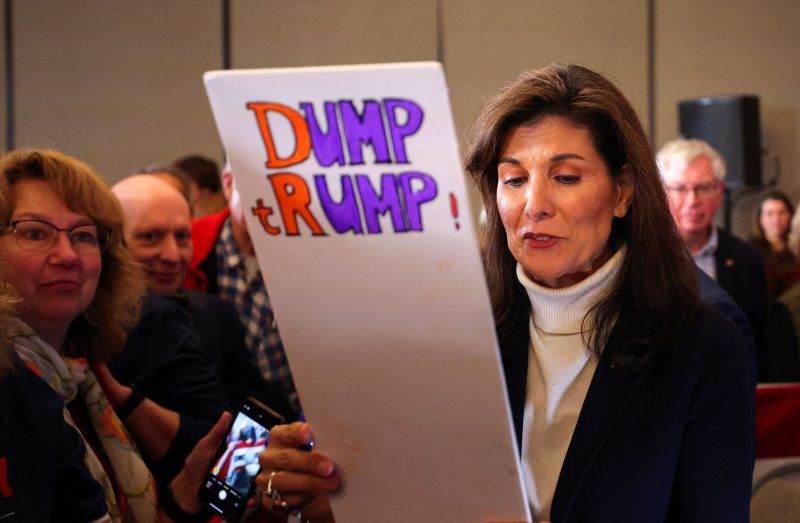
Nikki Haley wins D.C. primary, her first victory in GOP nominating race
Former South Carolina governor Nikki Haley won her first contest in the Republican presidential nomination race on Sunday after triumphing in D.C.’s primary. It is not likely to change the contest’s trajectory.
After three days of voting, polls in the Washington race closed at 7 p.m. Eastern time on Sunday. Though only 19 delegates were at stake, Haley perhaps had her best chance of defeating Trump, as he performed poorly in the last competitive GOP presidential contest in 2016. That year, he lost the D.C. primary to Sen. Marco Rubio (R-Fla.) — a rare defeat for Trump in that GOP race.
With all the votes counted, Haley got 63 percent of the vote to 33 percent for Trump — and she won all of the delegates.
In a statement, Haley campaign spokeswoman Olivia Perez-Cubas noted that the former U.N. ambassador is the first woman to win a Republican primary in U.S. history.
“It’s not surprising that Republicans closest to Washington dysfunction are rejecting Donald Trump and all his chaos,” Perez-Cubas said in the statement.
Almost immediately after the race was called for Haley, Trump campaign spokeswoman Karoline Leavitt mocked Haley and D.C. Republicans by echoing Trump’s constant claims that the capital city is a “swamp” full of establishment Republicans.
“While Nikki has been soundly rejected throughout the rest of America, she was just crowned Queen of the Swamp by the lobbyists and DC insiders that want to protect the failed status quo,” Leavitt said in a statement. Despite being in the White House for four years and having the backing of most Republicans in Congress, Trump has long argued that Republicans in D.C. are primed against him.
Unlike Trump, Haley campaigned in Washington ahead of the primary, visiting the city Friday.
The Washington primary was small in size compared with other states, and Republicans in D.C. cast ballots at the Madison Hotel. The election was managed by the D.C. GOP.
According to the D.C. GOP, the weekend election was held at “the earliest possible time under party rules.” A Republican primary in D.C. in June — when Democrats will hold their own primary — would have violated the national GOP’s rules, which prohibit primaries meant to allocate delegates to the Republican National Convention less than 45 days before the convention is held on July 15. This means party chapters have to hold their primaries by May 31.
According to the District’s GOP, 2,035 Republicans participated in the primary.
The Washington contest took place after Trump racked up three wins over the weekend in Missouri, Michigan and Idaho.
Michigan Republican officials and other preselected party members awarded Trump all 39 of the delegates up for grabs at their caucus convention in Grand Rapids. The former president also won most of the 16 delegates that were allotted based on Michigan’s statewide primary earlier in the week. Trump won every delegate in Idaho’s caucuses as well, and the Associated Press projected a victory for him in Missouri, as Republican voters across the two states made their selection at party-run meetings.
Before Washington’s primary Sunday, Trump had 244 delegates, compared with 24 for Haley.
That’s a daunting edge as the two Republicans head into Super Tuesday on March 5, when 15 states vote and a third of GOP delegates are at stake. Despite polling drastically behind Trump, Haley has promised to stay in the Republican primaries until at least Super Tuesday. It’s unclear what she will do after that.
Haley was not in D.C. on Sunday to celebrate her victory but instead was campaigning in Maine, one of the Super Tuesday states. On Friday, she received the endorsement of longtime Maine Sen. Susan Collins (R) ahead of Tuesday’s primary.
